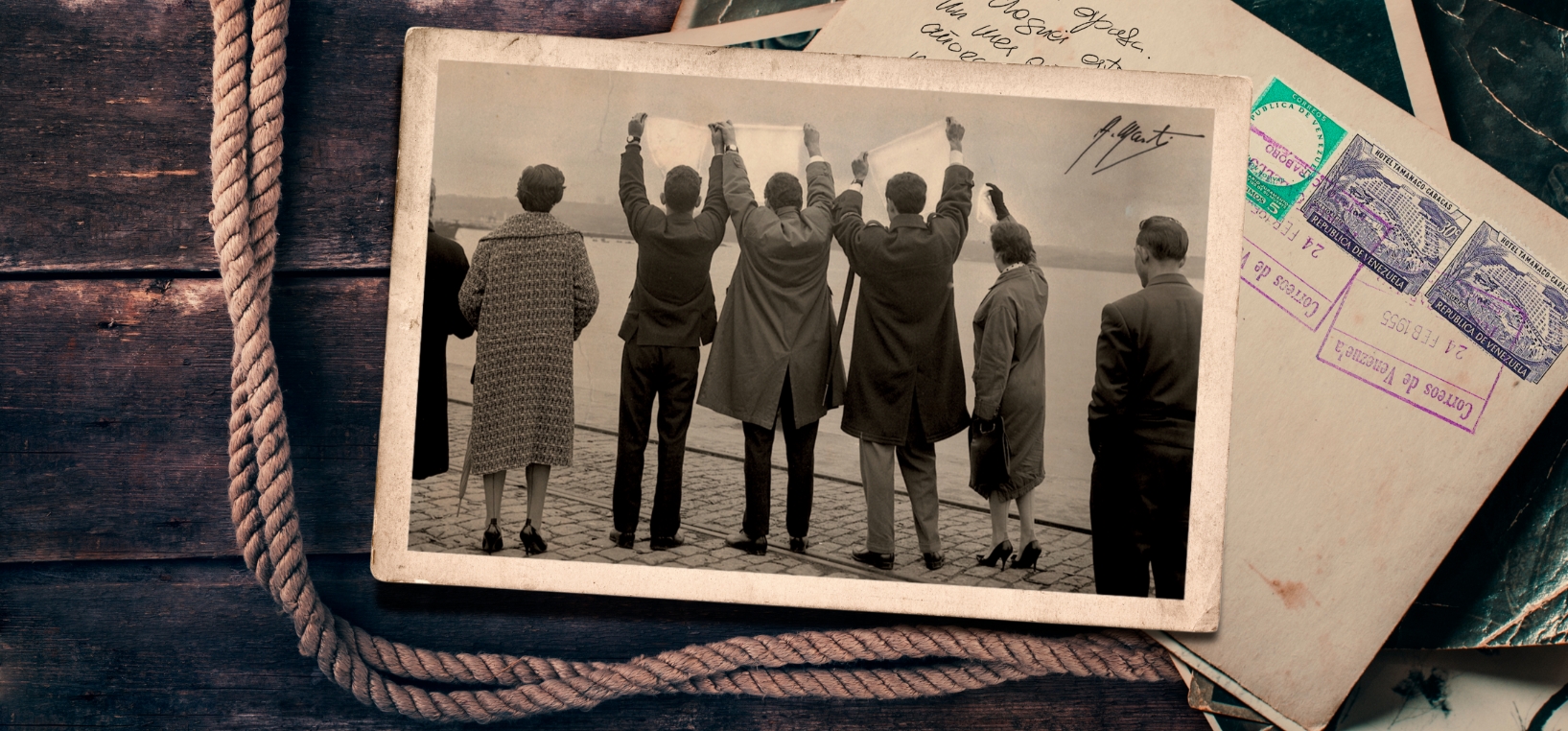
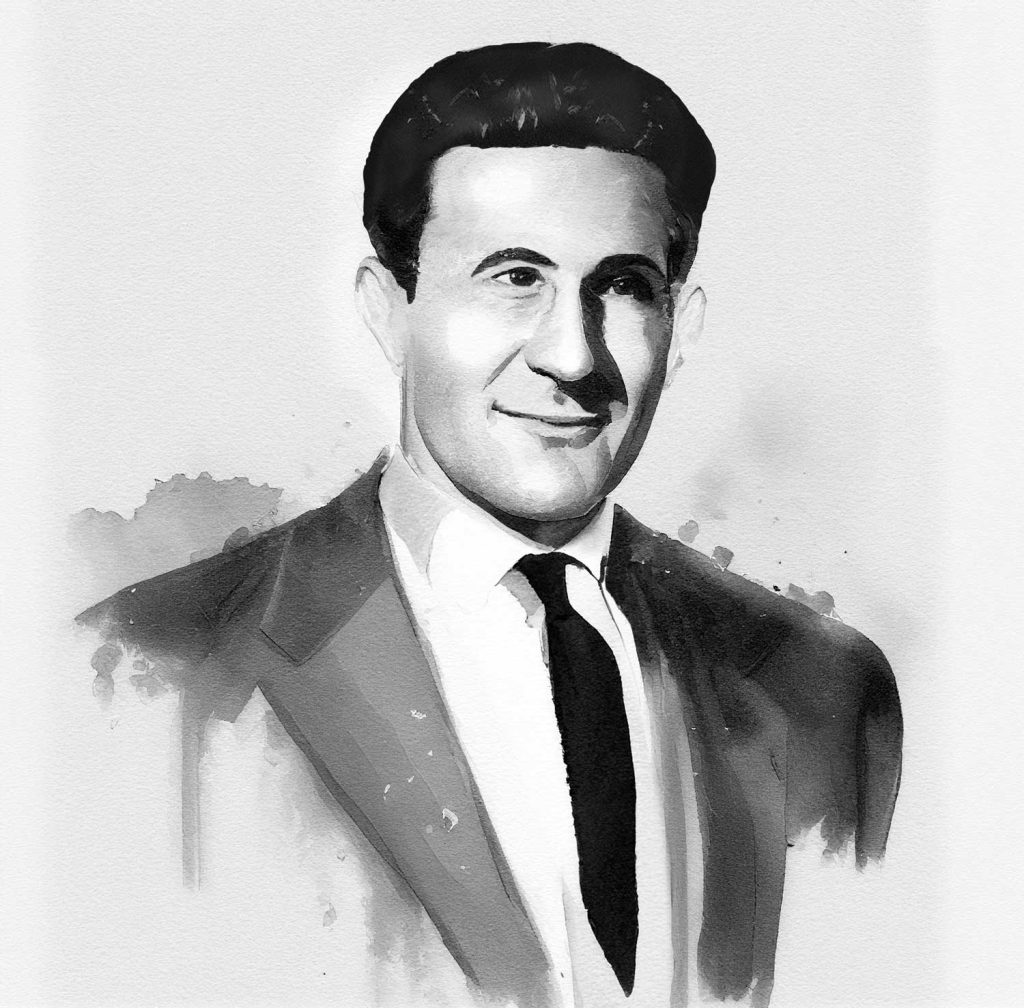

In the mid-50s, our father’s life was squeezed by the uncertain circumstances of the day. The desire to succeed and follow his dream led him to decide to emigrate to Venezuela, leaving behind his beloved village of Astariz, his family, friends and future wife, Áurea. A homesickness that remained with him all his life.
After a long voyage aboard the vessel Montserrat, Ramón arrived in the port of Guaira on 8th February 1955 (Caracas, Venezuela). A moment that was to mark the beginning of a personal saga, one that forms part of the collective memory of his native Galicia region.
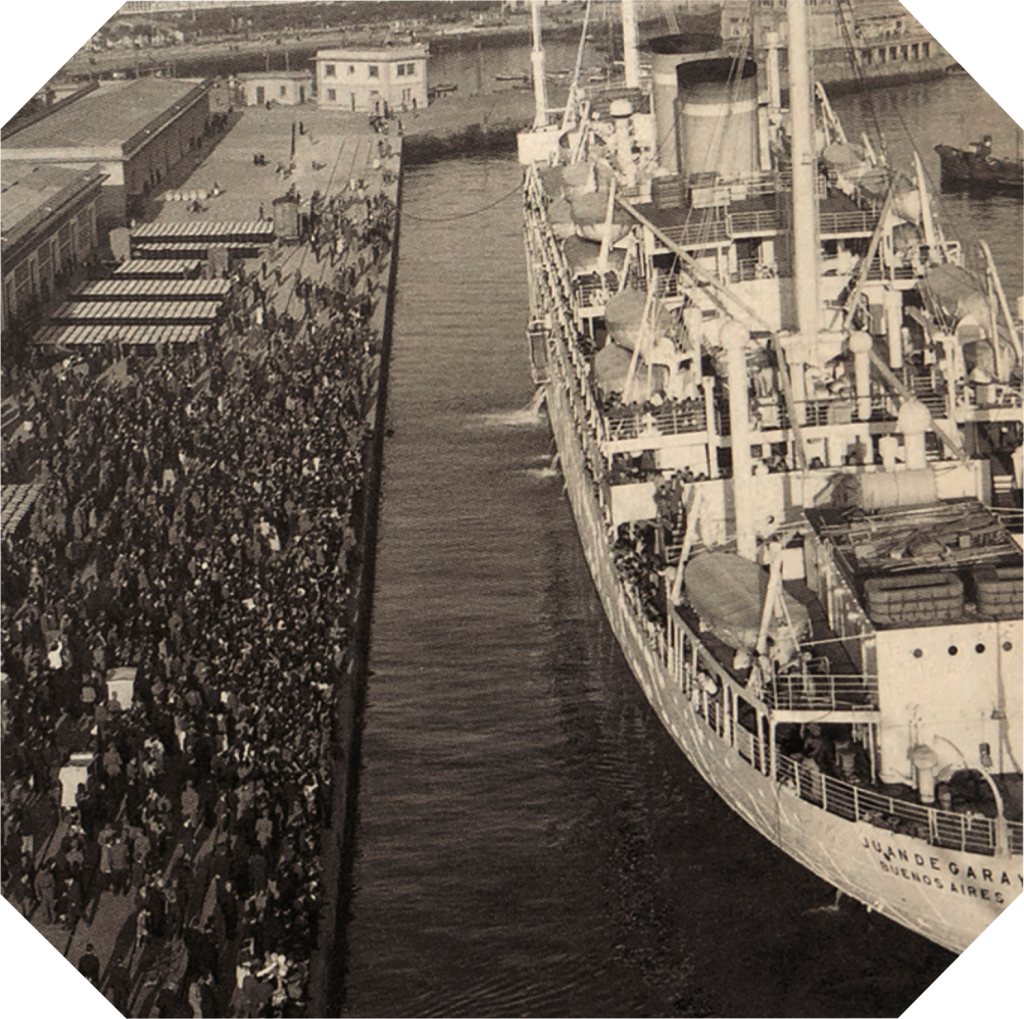
In the mid-50s, our father’s life was squeezed by the uncertain circumstances of the day. The desire to succeed and follow his dream led him to decide to emigrate to Venezuela, leaving behind his beloved village of Astariz, his family, friends and future wife, Áurea. A homesickness that remained with him all his life.


After a long voyage aboard the vessel Montserrat, Ramón arrived in the port of Guaira on 8th February 1955 (Caracas, Venezuela). A moment that was to mark the beginning of a personal saga, one that forms part of the collective memory of his native Galicia region.

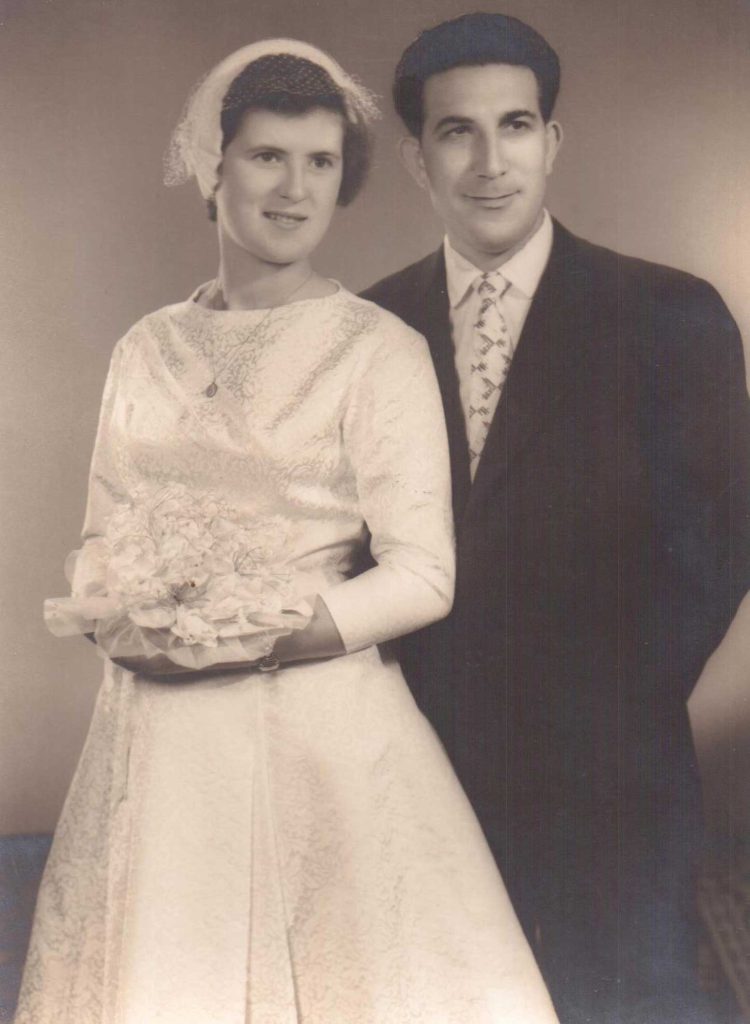






In 1960, after keeping up a long-distance relationship for five years, Ramón travelled to Spain to marry his beloved Aurita. A story of love and work that was to continue in Venezuela for several decades before they finally returned to Galicia.
Today, our mother still remembers stories, experiences and moments from her life with Ramón. Together they coped with everything, together they built a future for themselves.
Ramón do Casar, 2024. ©
Ramón always dreamed of returning home and setting up a family project in the world of wine. It was in 2013 that, after decades of hard work and sacrifice, his dream came true with the building of his winery in Prado, Castrelo de Miño (Ourense province). A year later, the first Ramón do Casar vintage became a reality.
The path to the present day began with the 8 hectares of vineyards purchased by our father while he was in Venezuela, leading to the 25 hectares of vineyards we have today.
Ramón do Casar was born thanks to the spirit of achievement of a family. A philosophy of working based on perseverance, one that has enabled us to become one of the most successful prize-winning wineries in the world, with more accolades in the last decade than any other establishment in the Ribeiro wine region.
The goal is the path.
Ramón always dreamed of returning home and setting up a family project in the world of wine. It was in 2013 that, after decades of hard work and sacrifice, his dream came true with the building of his winery in Prado, Castrelo de Miño (Ourense province). A year later, the first Ramón do Casar vintage became a reality.
The path to the present day began with the 8 hectares of vineyards purchased by our father while he was in Venezuela, leading to the 25 hectares of vineyards we have today.
Ramón do Casar was born thanks to the spirit of achievement of a family. A philosophy of working based on perseverance, one that has enabled us to become one of the most successful prize-winning wineries in the world, with more accolades in the last decade than any other establishment in the Ribeiro wine region.
The goal is the path.
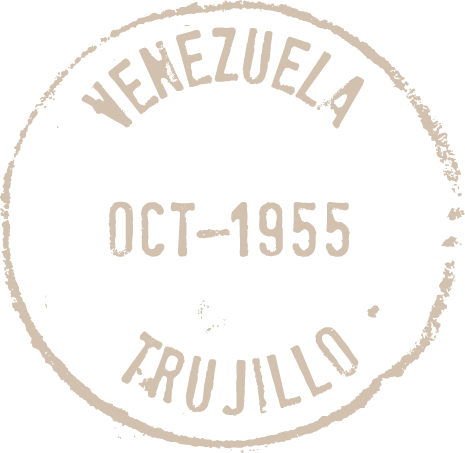
Ramón always said that without music
he would never have made his dream come true.
First in local town bands in Castrelo
de Miño (Ourense province, Spain) and later
on an occasional basis in Trujillo (Venezuela).
His passion and skill with the
saxophone were not his only skills,
but they played a crucial part in
making his future.
Photographs:
Ramón with other musicians. 1962.
Trujillo, Venezuela.
Ramón with his beloved Aurita.
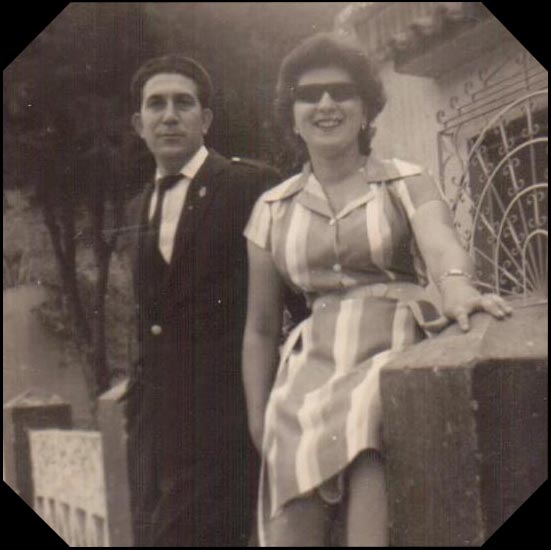
Ramón always said that without music he would never have made his dream come true.
First in local town bands in Castrelo de Miño (Ourense province, Spain) and later on an occasional basis in Trujillo (Venezuela). His passion and skill with the saxophone were not his only skills, but they played a crucial part in making his future.

Fotografías:
Ramón con compañeros músicos. 1962.
Trujillo, Venezuela.
Ramón con su querida Aurita.
Photographs:
Ramón with other musicians. 1962. Trujillo, Venezuela Ramón with his beloved Aurita
He started work at the age of 12 as the
messenger boy at Foto Blanco in A Coruña.
Over the years, his boss realised he was the ideal
person to carry on his legacy, and passed on the
business to him.
Over 50 years, he combined running the business
with his work as a photo reporter for the
newspaper La Voz de Galicia. Many of the photos
that are part of the collective memory of Galician
emigration are his.
We are in debt to him for his vision, the one that
captured emotional moments for thousands of
people emigrating overseas from the ports of A
Coruña and Vigo. Moments of sadness, but among
them flashes of hope, like his photograph of a baby
girl born on a boat going back to Galicia.
We are proud to be associated with his work. We
fondly remember the time when he gave Ramón
do Casar some of his photographs, which became
part of his identity. We believe he saw a part of his
own life in our memory.
Alberto Martí’s photographic work allowed us
to rediscover our own history. We are always
moved to remember the documentary in tribute
to him where we recorded his memories.
Thank you, Maestro.
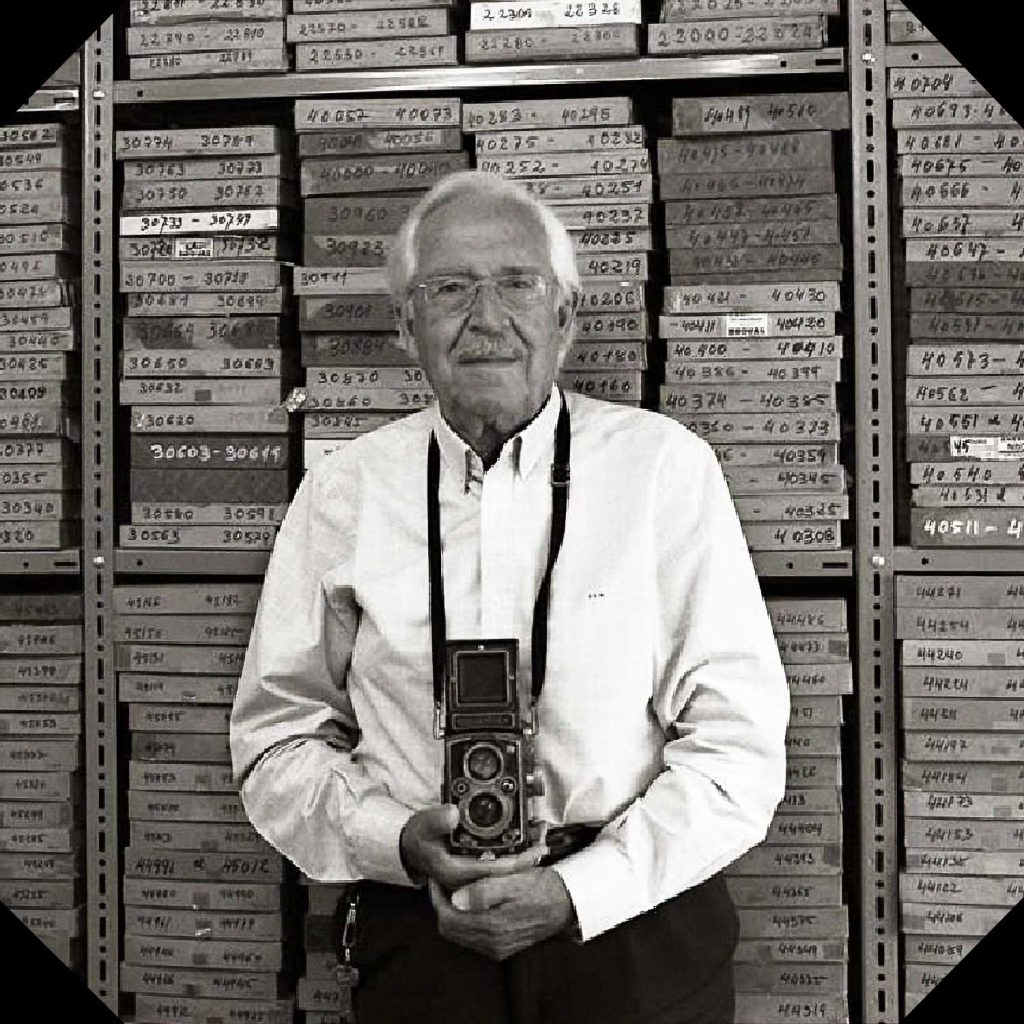
Alberto Martí (Santiago, 1922).
He started work at the age of 12 as the messenger boy at Foto Blanco in A Coruña. Over the years, his boss realised he was the ideal person to carry on his legacy, and passed on the business to him.
Over 50 years, he combined running the business with his work as a photo reporter for the newspaper La Voz de Galicia. Many of the photos that are part of the collective memory of Galician emigration are his.
We are in debt to him for his vision, the one that captured emotional moments for thousands of people emigrating overseas from the ports of A Coruña and Vigo. Moments of sadness, but among them flashes of hope, like his photograph of a baby girl born on a boat going back to Galicia.
We are proud to be associated with his work. We fondly remember the time when he gave Ramón do Casar some of his photographs, which became part of his identity. We believe he saw a part of his own life in our memory.

Alberto Martí’s photographic work allowed us to rediscover our own history. We are always moved to remember the documentary in tribute to him where we recorded his memories. Thank you, Maestro.